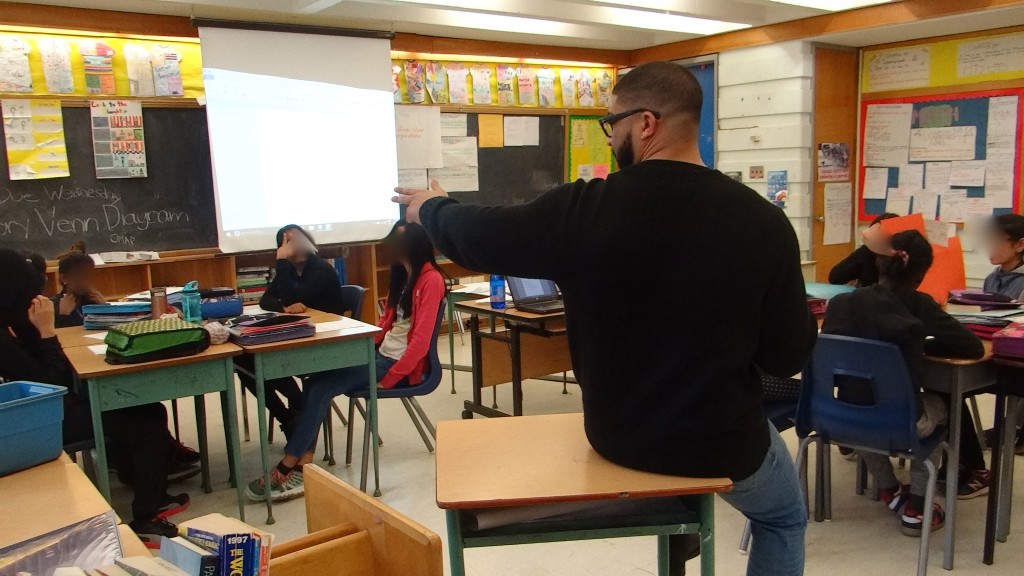I had totally forgotten that my principal would be in for my teacher performance appraisal in early spring. We had sat down in the early winter to set dates and times. At the time, I figured an alert one day in advance of my way-down-the-road TPA would suffice. Surely, I would check my monthly schedule at some point between November and April and notice that I had to prepare for my upcoming evaluation. Well, both Christmas and Spring breaks flew by and the thought of being evaluated by my boss was so far in the back of my mind, it took a casual reminder by him to actually bring attention to the event. “Hey Matthew, so you’re good for your meeting with me on Monday?”
“Um. Meeting? Meeting. Hmm, about what?” Whispers in my brain so loud he could probably read the confusion on my face. Thankfully the purpose for the upcoming meeting became evident over the course of our short convo. “Ah shoot, he probably did read it on my face!”
“Oh yeah. Absolutely.” I had been teaching literary devices to my seventh graders so some real-life examples of hyperboles were, at least, one thing fresh on my brain.
I spent the weekend making sure my assessment records and day plans were up to date. I had already been playing with some thoughts for a new lesson that would begin a new group project for my history class. I figured I would take this opportunity to get back into teachers’ college mode and really write it up sufficiently. As planned, we had our pre-observation meeting on Monday and everything was kosher. I walked out of the meeting eager to have my boss watch me “do work”; but I can’t lie, I also felt a slight tinge of anxiety.
Not serious anxiety, I have always been confident in my abilities to educate. Give me a skill that you want a class to learn, I’ll arm up and make sure that skill gets “learnt”, my friend. But that insidious subconscious that is ample in us teachers always manages to start turning when one has to teach under the microscope.
Two days before my lesson, I touched it up and tweaked it over and over. I considered changing the lesson entirely. Like all the way entirely, thinking that maybe a math lesson would be better to “perform” under the microscope than a history lesson. Math is numbers, three-part lessons mixed with “minds on” catchy hooks and learning consolidation; all Board issue propaganda. I could robotically go through the paces and have my principal soak it all in. Proving that I am well-aligned with cutting edge pedagogy could be much easier done through teaching about ratios than about racism (which played a major part in my history lesson). But my style has always been somewhere closer to the point of to-hell-with-it, so I stuck to my guns and hoped (maybe I even prayed, just saying), that my kids would be in the mood to actually get into a deep discussion on the day my boss was in attendance.
The day came for my performance review. My principal greeted the students, made some small talk with a few kids, and found an unassuming seat somewhere in my classroom.
Lights, camera, action.
The full-on Mr. Morris came out. Probing my students to dig deeper into the complexities of what I was trying to bring out. I made sure that every last one of my students was engaged with the flow of what we were embarking on. Told the quiet kids to speak up, called on kids who hadn’t strung more than two sentences together all year, pushed the group intellectually, and kept them engaged.
Whoa…I am feeling myself too much right now. Re-read the last paragraph and paraphrase with full-on criticism. I mean, I kinda maybe did all that. What I did do was “teach” harder than I usually do.
Many in education feel that teacher performance measures are a prime example of the bureaucracy of contemporary education. In most school boards, your evaluation is either pass or fail. And like most bureaucracies, a fail means more paperwork for everyone involved. Good teachers don’t get paid more than bad ones, unions cover our ass; it is a trial in futility. While I agree with some of that, experiencing the teacher evaluation process for the first time since my first year (where I felt like I literally didn’t know what the hell I was doing) has given me some added insight on how and why assessing teacher performance is actually a good thing.
Beyond the intrinsic drive that compels many to be good teachers, what else forces us to evaluate our methods of teaching and competencies for the craft? I used the opportunity to test out a new lesson. Did I make mistakes? For sure. Can I keep a file labeled “TPA”, let it gather dust, and pull it out the next time a principal decides to assess my practice? Absolutely. Cynically speaking, I would not be wrong for this, either. But, did I teach to my “full potential” while retrospectively realizing that if I do that more often, despite the energy it takes, it makes for better learning? Yep, yep, and yep. Like any other bureaucratic measure that forces a procedural and limiting element into the trenches of day-to-day teaching, if you take it seriously and work through the process authentically, you will be left with some pieces that will only aid your pedagogy and help you become a better teacher. And isn’t that in everyone’s best interest?
[share title=”Share this Post” facebook=”true” twitter=”true” google_plus=”true”]

